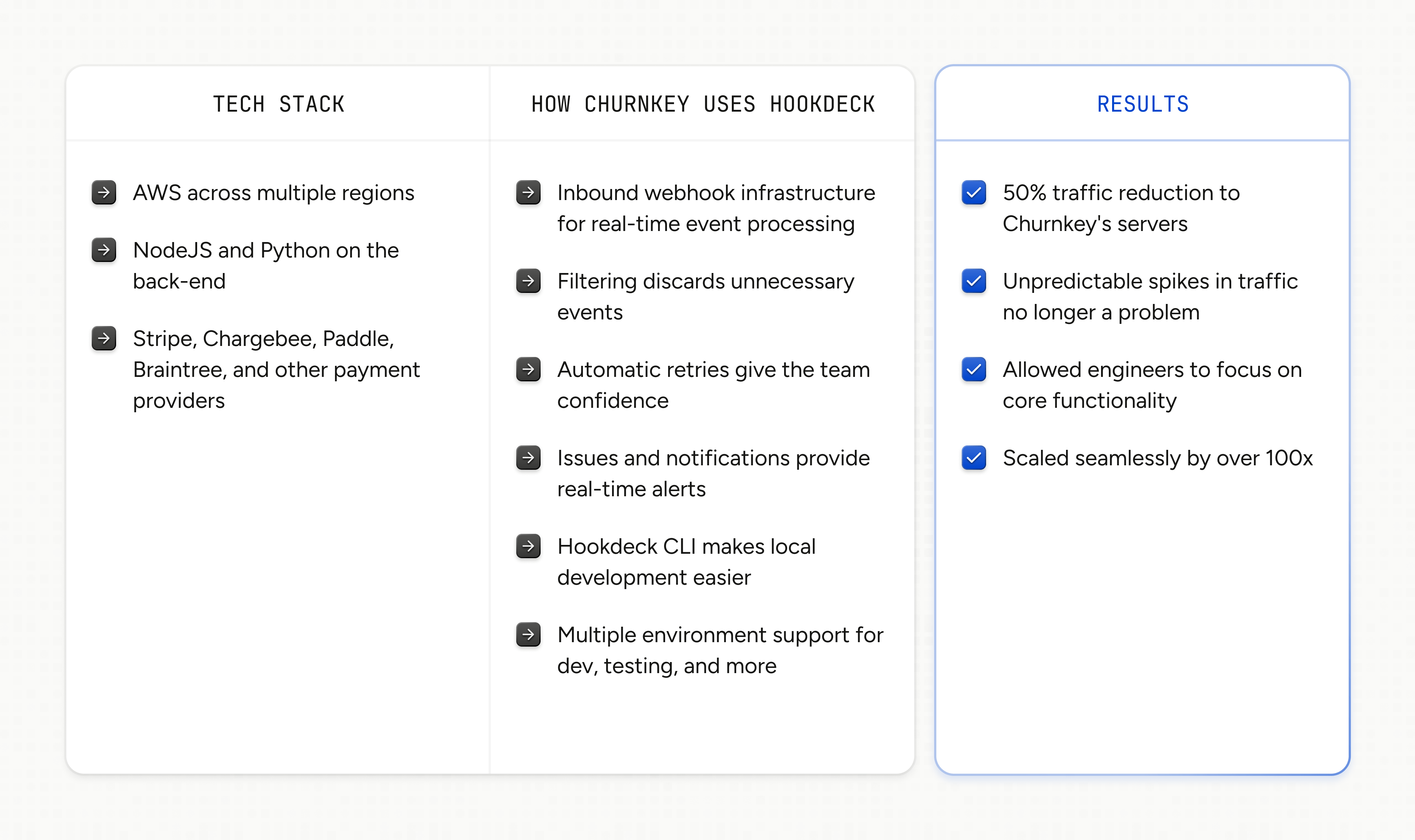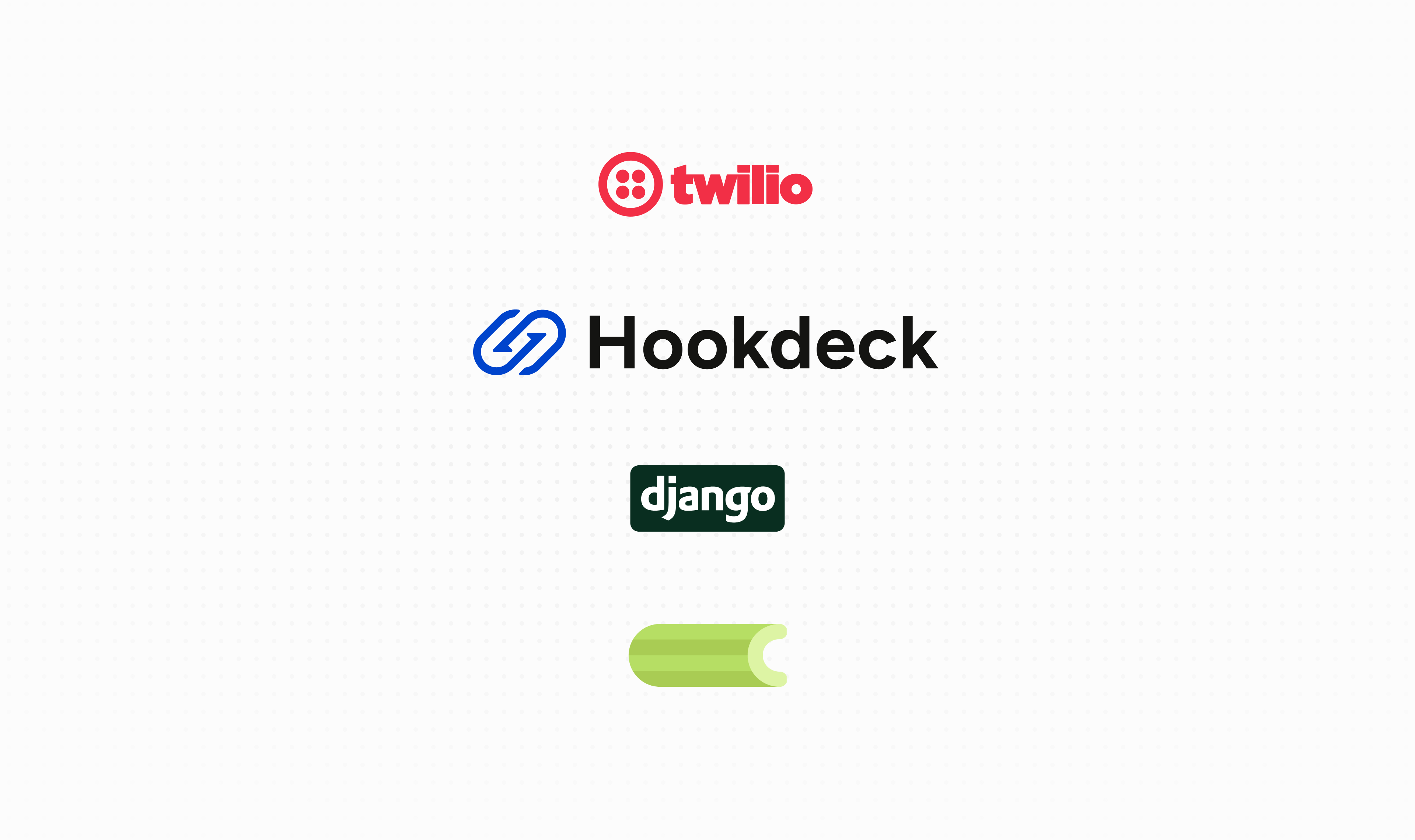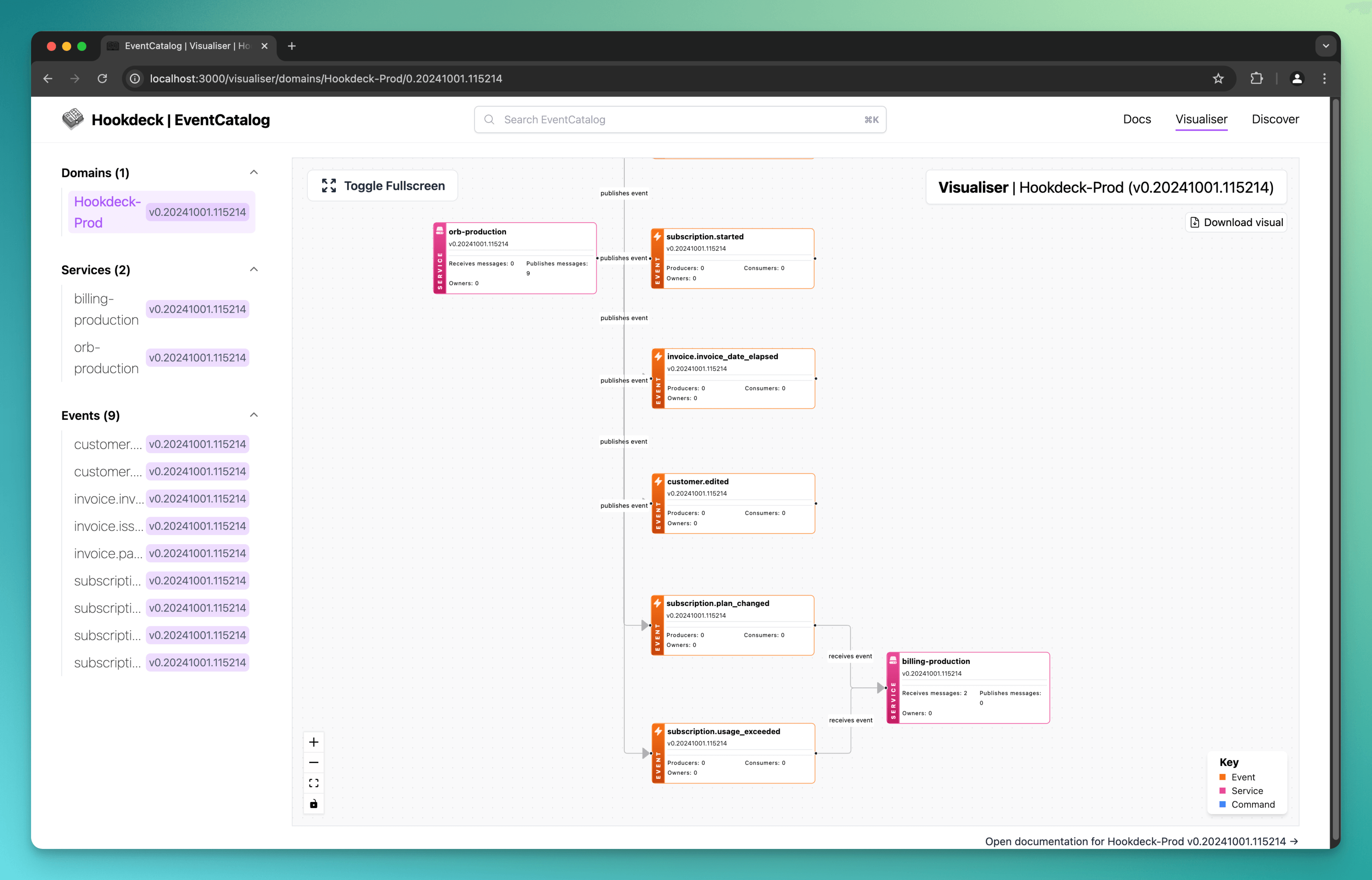Hookdeck Review: August & September 2024

Welcome to the Hookdeck Review for August & September 2024. This review covers two full months of updates, tips, and customer stories.
Customer Story: Churnkey
Learn how Hookdeck helped Churnkey scale to handle 100x more data as they went up-market and cut unnecessary inbound events by 50%, reducing cloud costs and infrastructure strain.
The customer story also covers how Hookdeck improved the DX of Churnkey's software development lifecycle (SDLC) by simplifying development and testing with the Hookdeck CLI and isolated environments and enabling rapid onboarding of new integrations.
Read the Churnkey customer story to find out more about how Hookdeck helped Churnkey scale and improve their SDLC.
If you'd like to share your Hookdeck story with us, please get in touch.
Preventing Twilio Webhook Overloads in Django
The engineering team at Harvust shares the approaches they took and where they eventually landed when managing webhook traffic spikes from Twilio within their Django-based infrastructure.
Read the Handling Twilio Message Status Webhook Spikes with Hookdeck, Django, and Celery blog post.
Visualize Hookdeck Sources, Destinations, and Events in EventCatalog
EventCatalog (EC) is an open-source platform that helps you:
“Discover and document your event-driven architecture (EDA) effortlessly. EventCatalog centralizes your events, services, and schemas in one place.”
EC provides a visualization of your EDA, built by Dave Boyne, who has previously worked at Postman and AWS.
From a Hookdeck perspective, EC with the Hookdeck generator allows you to see visual representations of:
In the above image, you can see a visualization of Orb, the usage billing system we use, as a Source, the various events it emits, and our own billing service Destination that consumes two of those events. The rest of the events are filtered out.
So, if you'd like some increased visibility of how you are using Hookdeck, try out EventCatalog with the new Hookdeck Generator for EventCatalog. To get started, head to the Hookdeck EventCatalog Generator GitHub repo.
Please get in touch if you have any questions or feedback.
SupaHooks: Outbound Webhooks with Next.js and Hookdeck
SupaHooks is a new open-source template that helps you create and manage outbound webhooks with Next.js and Hookdeck.
Read the SupaHooks: Outbound Webhooks with Next.js and Hookdeck announcement for more information or start with the SupaHooks GitHub repo.
Reaffirming our commitment to reliable async messaging infrastructure
Hookdeck experienced an incident on August 28th and 29th that significantly delayed event delivery. This had severe consequences for many of our customers. We need to meet our own high standards and our customer's expectations, and we understand that significant and concrete changes are required in order to maintain trust.
Read the blog post for a detailed account of the incident, the root cause, and the steps we're taking to prevent similar incidents in the future.
Tip: Bookmark and Replay Webhooks with Hookdeck
Bookmarks can be used to store and replay webhook events and:
- 💻 Increase productivity in development
- 🧪 Automated tests such as in CI/CD
- 🐛 Capture events from PROD and use to diagnose and fix issues in DEV
Learn more about Hookdeck Bookmarks.
Changes to Attempts
Historically, any "Pending" or "Paused" Event would have an Attempt of the same status. We'd consider those events to have one Attempt even though the Attempt request had not been completed to the Destination.
From now on, Attempts will only be created once the Attempt to deliver an event to a Destination has been completed.
An Attempt represents the result of the delivery to the Destination made for an Event. This change comes with a minor change to the Events UI to better represent the state of the Event and their attempts.
While this change may seem minor, it's a fundamental change in how Hookdeck handles state management, enabling considerable performance improvements.
Additionally, we've released API version 2024-09-01. Additional information is available in the API changelog.

Quick updates
- Hookdeck Terraform Provider v0.4 released
- Receive and replay webhooks with Netlify Functions guide updated
- Receive and replay webhooks with Vercel Functions guide updated
That's it for the August & September 2024 review.
Don't forget to get in touch if you'd like to share your story of using Hookdeck or if you have any questions.


